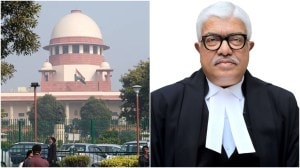Golden run revitalises patriotism amongst Russians
Moscow, October 2: The Cold War era sporting empire was supposed to have fallen apart by now.Yet today the Russians, second only to the he...

Moscow, October 2: The Cold War era sporting empire was supposed to have fallen apart by now.
Yet today the Russians, second only to the heavily favoured and eternal rival US team at the Sydney Olympic Games, were swelling with pride and a revitalised sense of patriotism.
After a weak start that had many shaking their heads in resignation, their team stormed back and, somewhat surprised, Russians agreed that not all was lost.
Russia, they found, is still a sporting power to be reckoned with.“Russia confirmed its status as a great sporting power," The Sevodnya daily crowed in a banner headline.
“These delicate girls proved that Russia is a great power – at least in the field of sports,” it added under a photograph of six ecstaic artistic gymnasts showing off their gold medals.
The world is stunned, in toned the liberal daily, that the economically impaired nation that emerged from the ruins of the Soviet empire managed to somehow prepare athletes who almost beat the US team to the top spot.“At the finish, Russia’s patriotism came through,” Sovsky Komsomolets declared.
Russia finished the Olympics with 32 gold medals, six more than at the 1996 Atlanta Games that some thought would see the last strong showing by a team whose athletes were largely trained by the Soviet machine.
In Sydney, the Russian team won only nine medals fewer than the United States. It was four gold medals ahead of China, another strong favourite, and had twice as many golds as home darlings and swimming giants Australia.
“Our experts had predicted some 30-35 golds, but no one quite knew for sure. The outcome was indeed impressive,” Alexander Ratner, the official spokesman for the Russian Olympic Committee, said on telephone from Australia.
The results could have been even better. After disappointing showings, several of the early competitors complained that they had taken the 30-hour flight to Australia only two days before the Games opened, and were almost sleepwalking through their performances.
It was unclear whether the last-minute arrival was due to lack of funds, and the Olympic committee made no comment on that decision.
But with the Games over, newspapers and sociologists commented that the Russian psyche had changed after the final gold was won.
“We will catch the Americans next time,” The Izvestia daily promised next to a photo of star gold medal winning gymnast Svetlana Khorkina sticking out her tongue, showing off that the Russians can still do it.
Some still wanted even more. “Between the future and the past in the Olympics the Russians outran China, but failed to catch the Americans,” The Vremya Novostei paper said.
Some Russian sociologists, meanwhile, said even government after a series of disasters that included the Kursk nuclear submarine tragedy stood to profit, if only briefly, from the wave of patriotic fervour as the nation embraced its athletes.
“For the people, (the Games) are a World War, even if they should not be,” said Yury Levada, a senior Russian sociologist with the VTsIOM polling agency.
“It has been so since the first time the Soviet team joined the Olympics” in 1952 at the Helsinki Games.
Yet he expressed doubt that its effects would last long.“This could of course help the government, but I don’t think it will do so too much.”



- 01
- 02
- 03
- 04
- 05




























